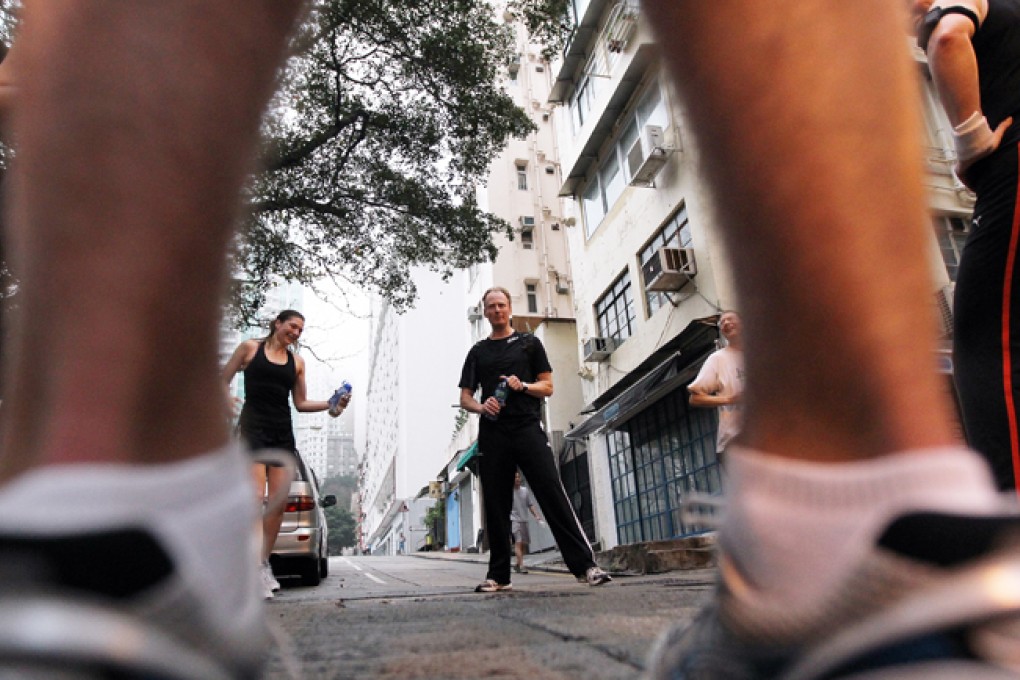Bankers go for the burn
Boot-camp-styled gyms, which appeal to the competitive nature of finance people, are increasingly popular, writes Payal Uttam

On a Thursday morning at 5am, loud rock music is blasting from a warehouse on Shipyard Lane in Quarry Bay. Three bankers dressed in gym clothes march in carrying their suits in laundry sleeves. One woman's T-shirt reads: 'Is that all you got?'
A muscular trainer calls out instructions and within seconds they are on the floor. They begin stretching, then grasping wooden hoops dangling low from the ceiling. Hoisting themselves up and down, they grunt and breathe heavily. The music gets louder, the trainer shouts 'three, two, one' and each person grabs a rope and starts skipping frantically.
Some push ahead of others. Andrew Rizkalla, a Deutsche Bank equity trader, picks up a 24kg weight and begins swinging it over his head and between his legs. Another woman with a steely expression records her progress in a notebook.
Welcome to CrossFit Asphodel, a boot-camp-styled gym that specialises in competitive group training. In recent years, turbo-charged fitness regimes like CrossFit have become increasingly popular among hedge fund managers, bankers and traders. They are drawn to the intensity of the workouts and their emphasis on quantifiable results.
'There's an inner part of people which can be quite competitive: that may tell you why there's finance people here,' says Alix James, director of CrossFit Asphodel. 'In a year we've gone from two members to over 100. It's just been word of mouth.'
A Muay Thai boxing coach, James opened the gym in December 2010 with his partner Ashley Booth after discovering the online exercise programme CrossFit.